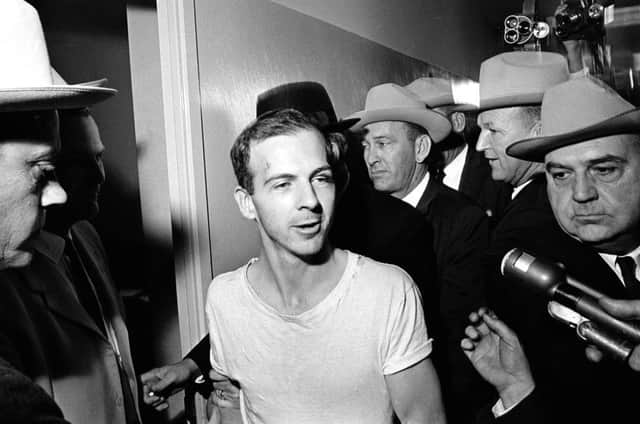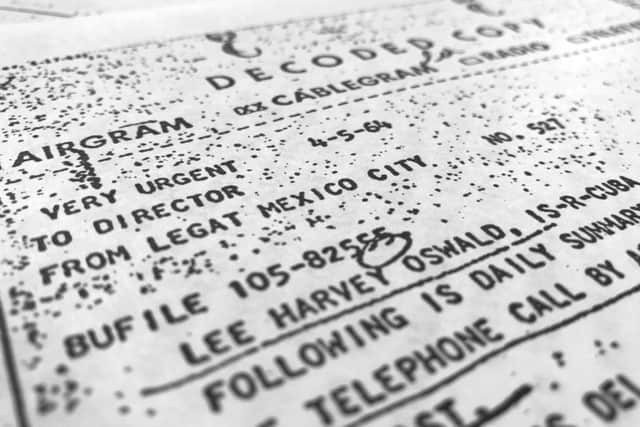Did '˜spy' from Grimsby tip off newspaper over Kennedy plot?


The name of Albert Osborne, sometimes known as John Howard Bowen, has long been familiar to Kennedy investigators and conspiracy theorists. The FBI reported that he had been sitting beside Kennedy’s assailant, Lee Harvey Oswald, on a bus bound for Mexico City, a few weeks before the shooting.
The report of the Warren Commission, which controversially concluded in 1964 that Oswald acted alone, included a bundle of evidence about Osborne.
Advertisement
Hide AdAdvertisement
Hide AdBut the re-emergence of his name yesterday added yet another layer of intrigue to an enigma that the release of 2,800 previously-unseen papers was supposed to clear up.


They reveal that an anonymous telephone call promising “some big news” had been made to the offices of the Cambridge Evening News, about 25 minutes before the president was shot in Dallas.
A memo from FBI deputy director James Angleton, said: “The British Security Service (MI5) has reported that at 1805 GMT on 22 November an anonymous telephone call was made in Cambridge, England, to the senior reporter of the Cambridge News.
“The caller said only that the Cambridge News reporter should call the American Embassy in London for some big news, and then hung up.”
Advertisement
Hide AdAdvertisement
Hide AdIt added: “After the word of the President’s death was received, the reporter informed the Cambridge police of the anonymous call and the police informed MI5.”


The revelation came as a bolt from the blue to present-day staff on the paper, but its existence had been discovered 36 years ago by the late Michael Eddowes, a lawyer who devoted much of his life to investigating President Kennedy’s assassination.
He had claimed that the anonymous caller was Osborne, a self-styled missionary and presumed Soviet agent who had apparently befriended Oswald.
Mr Eddowes believed that Osborne had been directed by Moscow to make the call, to propagate the story that the assassination had been a conspiracy.
Advertisement
Hide AdAdvertisement
Hide AdIt is not clear why he chose a newspaper in Cambridge as his conduit, but the FBI memo notes that other, “strangely coincidental” calls had been received by people in the UK in the same year, “particularly in connection with the case of Dr Ward” - a reference to Dr Stephen Ward, one of the central figures in the Profumo affair.
Osborne had been born in 1888 and had apparently severed his connection with Grimsby upon joining the army before the First World War. He died in Texas in 1966, and Rev Lyman Erickson, who reported his passing, said he had been told by the FBI to “forget everything I knew about him, forget I ever knew him”.